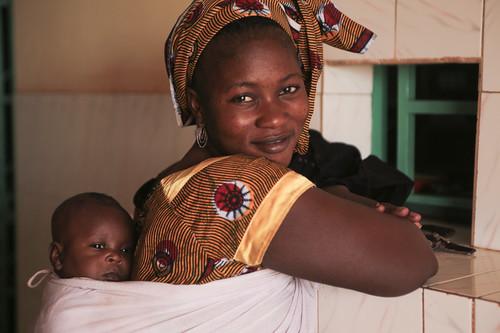No Newborn's First Day Should Be Its Last

WaterAid/Tara Todras-Whitehall
It is difficult to think of a topic more emotive than the health and survival of women and children during childbirth. Perhaps it’s because we were all born at some point, but perhaps it’s because intuitively we know that it is morally and ethically unacceptable that women should die while giving life, and that a newborn’s first day of life should also be its last. This was the focus of the recent Global Maternal Newborn Health Conference (GMNHC), held in Mexico City, which brought together academics, civil society, UN agencies and journalists from across the world.
The conference was unique in that it was held directly after the adoption of the new Global Goals, and included a particular focus on integration – an area of global health that elicits much confusion as to what this means and more importantly, how this can be achieved in practice. The issue was particularly pertinent to the panel session on WASH and MNH, which provided an important platform to discuss how best to integrate WASH and health, and recommend next steps and actions to drive forward this agenda.
Chaired by Professor Wendy Graham (the Soapbox Collaborative and University of Aberdeen, panellists included Professor Oona Campbell (LSHTM), Dr Kranti Voria (Indian Institute of Public Health), Alison Macintyre (WaterAid Australia), Fabrice Fotso (UNICEF), Merri Weinger (USAID), and Pavani Ram (University at Buffalo). By bringing together different experiences and areas of expertise, the panellists engaged in a stimulating and thoughtful discussion.
Reflecting on the session, what stood out most for me was the lack of data available on WASH in HCFs and furthermore the shocking nature of the statistics that are available. Learning that 38% of HCFs lack an improved water source, while 19% lack improved sanitation and 35% do not have soap and water for handwashing begs the question whether anyone would choose to give birth in situations without even the most basic infrastructure.
Although limitations in data and evidence is an ongoing challenge, it was clear from the panellists that this should no longer be a barrier to meaningful action at global, national and sub-national levels. We know that quality MNH care cannot be delivered in the absence of WASH and, as the number of women delivering in healthcare facilities increases, this provides a unique and critical opportunity to drive progress under the framework of the Global Goals, particularly Goal 3 on health and Goal 6 on water and sanitation. Developing multi-sectoral national policies, plans and guidelines with joint indicators, funding and monitoring will be essential to hold all stakeholders accountable for delivering progress.
Although the importance of WASH to improving MNH is not a new phenomenon, confusion as to who is responsible has meant that issues related to WASH fall through the cracks – forgotten in health policy dialogues and planning processes, and forgotten in practice. Greater efforts must be taken to ensure cross-sectoral dialogue and planning.
Whilst the conference highlighted some of the innovations in technologies to address MNH, sometimes it’s worth remembering that often the simplest interventions are also the most effective. So, as we celebrate the development of new technologies, let’s also not forget the basics!
